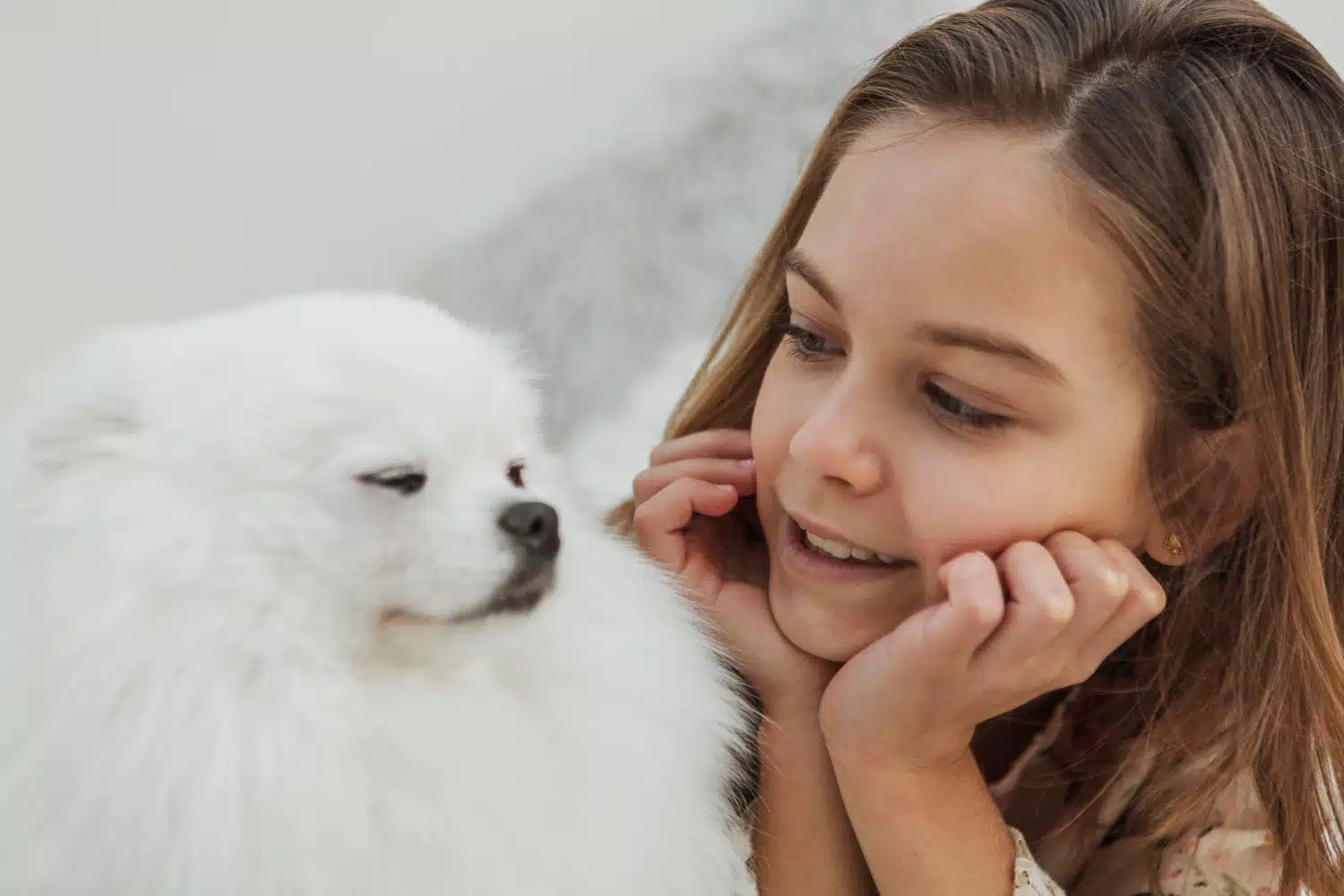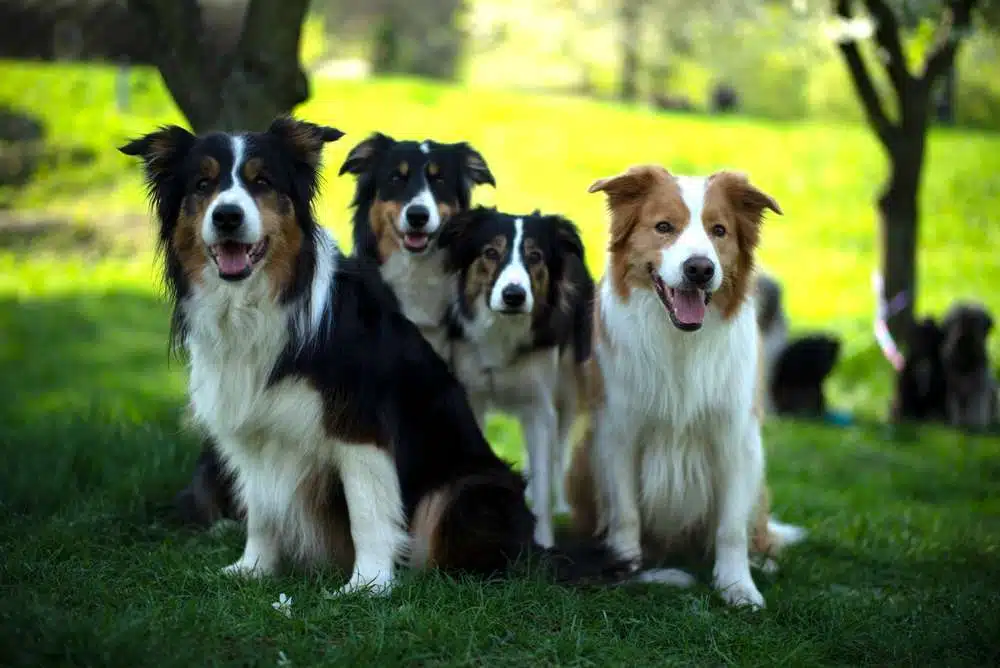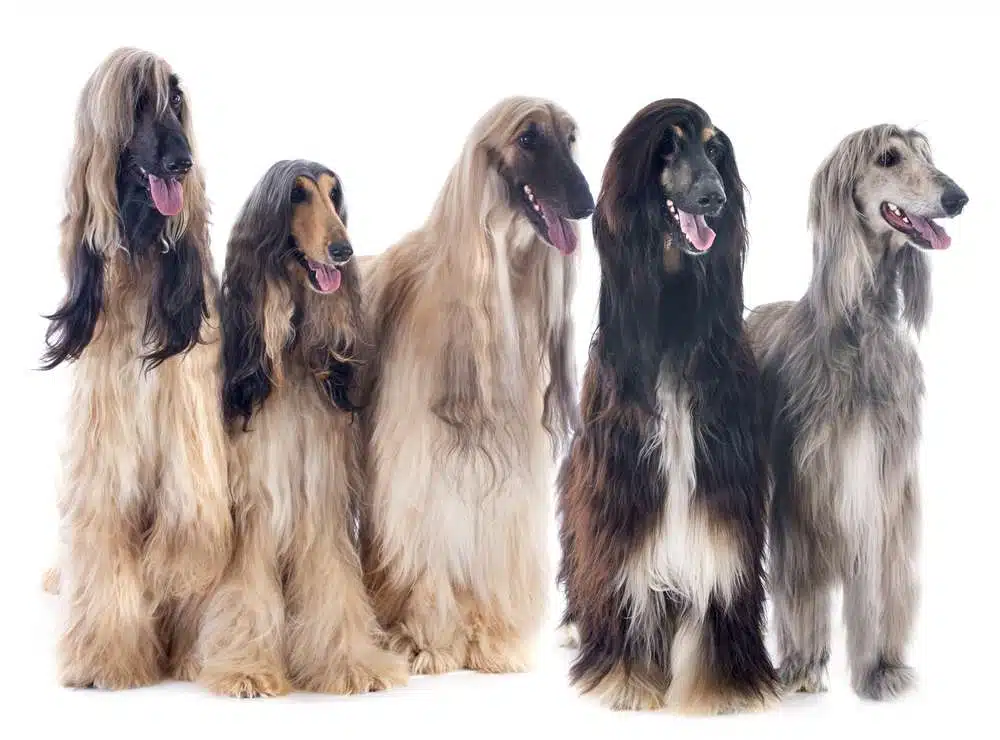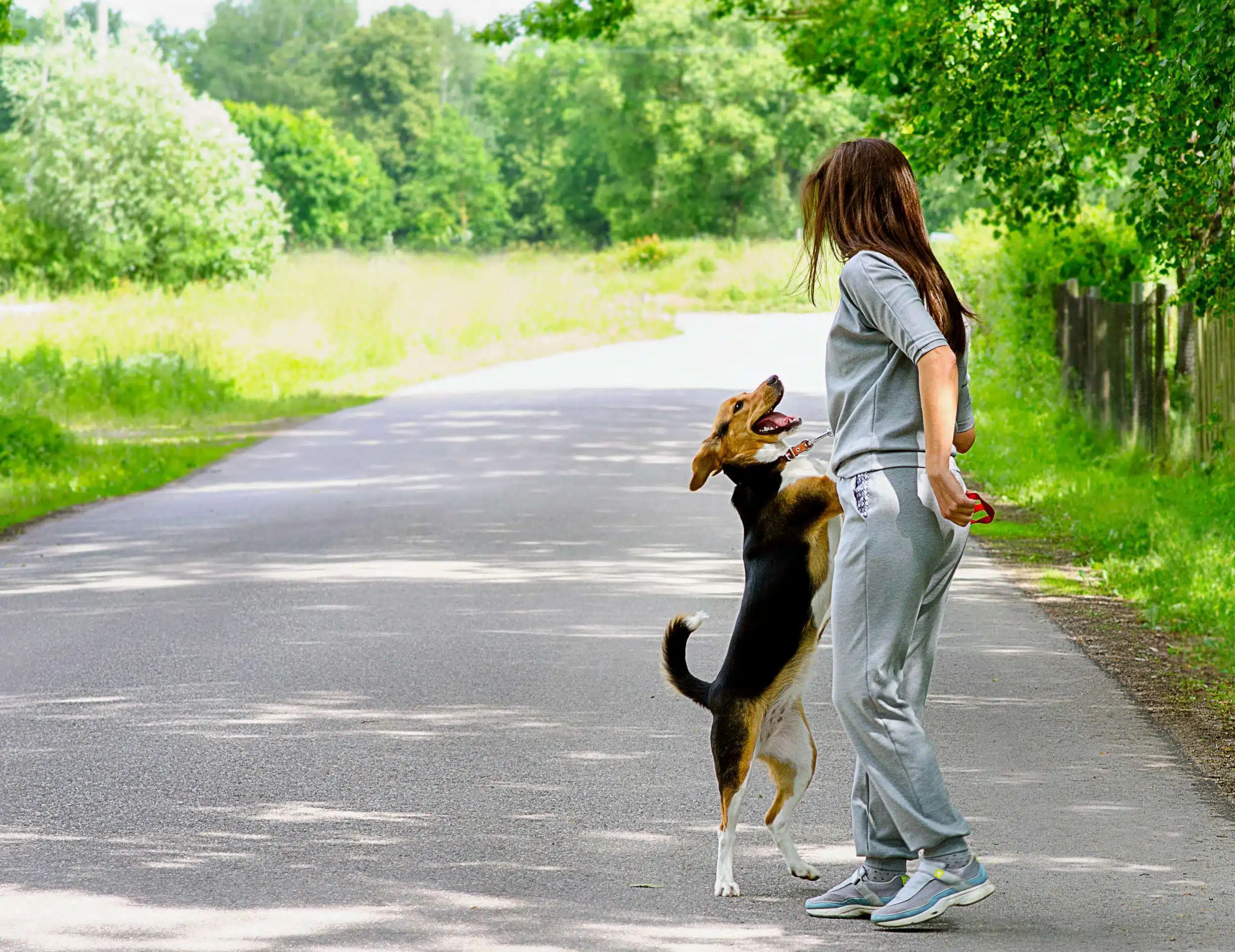Mental health conditions like anxiety and depression can make even the smallest of tasks challenging. Living with anxiety disorder and depression can be challenging, but the presence of a loyal and understanding companion can make all the difference. Emotional support dogs are specially trained to provide comfort, and companionship, and help alleviate symptoms of anxiety and depression. However, not all dog breeds are equally suited for being emotional support animals.
In this article, we will explore some of the best emotional support dog breeds, known for their gentle nature, intelligence, and ability to bring comfort to those in need. Whether you are seeking a small breed for apartment living or a larger breed for emotional support during outdoor activities, there is a breed for everyone on this list. Let’s dive in and discover the best dog breeds to help alleviate anxiety and depression.
Importance of emotional support dogs for anxiety and depression
Living with mental health conditions anxiety and depression can be incredibly isolating and hamper the overall quality of life, but the bond between a human and their furry emotional support animal can provide a sense of comfort and relief. These specially trained dogs offer unwavering support, helping individuals manage their symptoms and navigate through their daily challenges. The presence of an emotional support dog can bring a sense of purpose and companionship, reducing feelings of loneliness and anxiety.
It is important to note that not all dog breeds are equally suited for providing emotional support. it is advisable to seek the opinion of a mental health professional to outline the severity of your condition. Certain breeds possess inherent qualities that make them more intuitive and empathetic, enabling them to better connect with their owners and sense their emotional needs. This is why choosing the right breed for emotional support is crucial in ensuring the dog’s effectiveness in alleviating anxiety and depression.
By understanding the characteristics and temperament of different breeds, individuals can make an informed decision when selecting an emotional support dog that best fits their specific needs and lifestyle. You may consult with a well-versed mental health professional. Whether it is a small, cuddly breed that thrives in an apartment setting, or a larger, active breed that enjoys outdoor adventures, there is a perfect emotional support dog breed out there for everyone. Let’s explore some of the best dog breeds that excel in providing emotional support for anxiety and depression.
Characteristics of a good emotional support dog breed
A. Gentle nature and temperament
A good emotional support dog breed should have a gentle nature and temperament. These dogs are meant to provide comfort and be reliable companions for those struggling with anxiety and depression. They should be calm, patient, and loving, with the ability to sense and respond to their owner’s emotional needs.
Gentle-natured dog breeds like the Golden Retriever and Labrador Retriever are often recommended for emotional support service animals. These breeds have a reputation for being friendly, affectionate, and easy to train. They possess a natural empathy and can pick up on their owner’s emotional cues, providing the support and reassurance needed during difficult times, even in public spaces. Their calm demeanor makes them perfect for providing stability and comfort, helping to alleviate anxiety and depression symptoms.
B. Intelligence and trainability
Intelligence and trainability are also important qualities to consider when choosing an emotional support dog breed. Dogs that are highly intelligent and easy to train can learn commands and tasks quickly and are receptive to correctly delivered obedience training, making them effective in responding to their owner’s needs.
Border Collies and German Shepherds are examples of breeds known for their high intelligence, loving nature, and trainability. These breeds are quick learners and thrive when given mental stimulation and regular training. Their intelligence allows them to understand and respond to their owner’s cues, helping to create a strong bond and provide the necessary emotional support in emotional conditions.
C. Ability to provide comfort and companionship
The ability to provide comfort and companionship is a key characteristic of a good emotional support dog breed. Dogs that excel in this area are naturally affectionate, and loyal, and have a strong desire to be close to their owners. such breeds provide comfort during panic attacks.
Some intelligent breeds known for their exceptional ability to provide comfort and companionship are the Cavalier King Charles Spaniel and the Bichon Frise. These breeds have a loving and gentle disposition, and they thrive on human companionship. They are always ready to offer a cuddle or provide a listening ear, which can be comforting for individuals dealing with anxiety and depression. Their presence alone can help alleviate feelings of loneliness and isolation, creating a sense of emotional stability and support.
when looking for the best emotional support dog breeds for anxiety and depression, it is important to consider their gentle nature and temperament, intelligence and trainability, and their ability to provide comfort and companionship. Each individual’s needs may vary, so it’s essential to choose a breed that aligns well with one’s lifestyle and preferences. With the right emotional support dog by their side, individuals dealing with anxiety and depression can experience improved emotional well-being and find solace in the unwavering presence and love of their furry companion.
Best Emotional Support Dog Breeds
Let us take a look at some of the most popular dog breeds that prove to be good emotional support companions for people with depression and anxiety. These breeds when given proper training serve to be a major source of relief from such mental health issues. these dogs are given extensive training professionally which makes them a loyal companion for people with anxiety. Some of the breeds even get specialized training to provide emotional support professionally.
1. Labrador Retriever
Labrador Retrievers have earned their reputation as exceptional emotional support dogs due to their innate qualities of gentleness and kindness. Their inherently affectionate nature allows them to form deep emotional bonds with their owners, providing a sense of comfort and security.
Whether it’s a comforting nuzzle or a calming presence during moments of distress, Labradors instinctively understand how to provide the emotional support needed. Their gentle demeanor makes them ideal companions for individuals experiencing emotional challenges, as they offer unwavering companionship and empathy.
Labradors are not only gentle but also highly intelligent and adaptable. Their sharp minds enable them to intuitively sense their owner’s emotional needs and respond accordingly. Labradors can adapt to various environments and situations, making them versatile companions for individuals navigating different life circumstances.
Whether accompanying their owners on outdoor adventures or providing a comforting presence at home, Labradors effortlessly adjust to their roles as emotional support dogs. Their intelligence allows them to learn and understand specific cues, providing tailored emotional support that meets the unique needs of their owners.
Labrador Retrievers’ combination of gentleness, intelligence, and adaptability makes them renowned for their unparalleled ability to provide unwavering emotional support to those in need.
2. Bichon Frises- Emotional Support Dog
They emerge as perfect companions for emotional support dogs, extending a unique blend of cheerfulness and affection to individuals contending with anxiety, depression, and PTSD. Their small size and gentle disposition render them perfectly suited for providing comfort in diverse environments, whether in the tranquility of a home or amidst the bustling cityscape. Bichons possess an innate ability to forge deep connections with their owners, offering unwavering support and companionship serving as a beacon of solace during moments of distress and uncertainty.
Bichon Frises exhibits an impressive sensitivity to their owner’s emotional needs, intuitively providing comfort and reassurance without judgment. This intuitive understanding, coupled with their playful nature, can significantly alleviate feelings of isolation and sadness, fostering a sense of joy and connection. As steadfast companions, Bichon Frises play a vital role in supporting emotional well-being, offering unconditional love and companionship to those navigating the complexities of anxiety, depression, and post-traumatic stress disorder.
3. Golden Retriever
The high-energy breed of Golden Retrievers is renowned for their exceptional qualities as emotional support dogs, particularly for individuals grappling with anxiety and depression. Their innate gentle and patient nature makes them remarkably attuned to the emotional needs of their owners. Whether it is offering a calming presence during moments of distress or simply providing companionship, Golden Retrievers excel in providing comfort and reassurance.
Their eagerness to please and inherent trainability contribute significantly to their effectiveness as emotional support companions. They readily adapt to various training methods and commands, allowing them to assist their owners with tasks tailored to their emotional well-being. Their affectionate disposition fosters deep connections with their human counterparts, creating a sense of security and companionship that can alleviate feelings of loneliness and despair. Through their unwavering loyalty and boundless affection, Golden Retrievers prove to be invaluable allies in the journey toward mental wellness for those battling anxiety, depression and other mental health challenges
Also Read: How to Train an Older dog With Ease?
4. Cavalier King Charles Spaniel- Emotional Support Dog
Cavalier King Charles Spaniels are cherished for their unique ability to provide emotional support to individuals coping with anxiety and depression. Their calm and affectionate demeanor makes them ideal companions for those in need of comfort and solace. Whether snuggled up on the couch or accompanying their owner on a leisurely stroll, Cavaliers offer a sense of tranquility and reassurance.
Their small size further enhances their suitability as emotional support dogs, making them well-suited for apartment living and providing a constant source of comfort in close quarters. Despite their diminutive stature, the Cavaliers possess immense emotional intelligence and sensitivity. They have a remarkable knack for tuning into their owner’s emotions, often providing solace and companionship precisely when needed most. This unique ability to sense and respond to emotions enables Cavaliers to forge deep bonds with their human companions, offering unwavering support and companionship throughout life’s challenges. In essence, Cavalier King Charles Spaniels serve as steadfast allies in the journey towards emotional well-being, enriching the lives of those grappling with anxiety and depression with their gentle presence and empathetic nature.
5. Border Collie- Emotional Support Dog
Border Collies are an excellent choice for their remarkable suitability as emotional support companions, particularly for individuals navigating anxiety and depression. Their exceptional intelligence and boundless energy make them adept at providing not only physical but also mental stimulation, which can be highly beneficial for those seeking emotional balance. Their willingness to please and remarkable trainability further enhance their role as supportive allies, as they readily adapt to various tasks and commands aimed at alleviating emotional distress.
Moreover, Border Collies excel as active companions for outdoor activities, offering a source of motivation and companionship for their owners. Whether embarking on a hike through the mountains or engaging in a game of fetch at the park, Border Collies thrive in environments that encourage physical activity and exploration. This shared experience fosters a deep bond between owner and canine, providing a sense of camaraderie and joy that can be immensely uplifting for individuals struggling with anxiety and depression.
In summary, Border Collies stand out as compassionate and capable emotional support dogs, utilizing their intelligence, energy, and unwavering loyalty to enrich the lives of those in need. Whether through mental stimulation, physical activity, or simply being a steadfast companion, Border Collies play a vital role in supporting emotional well-being and fostering a sense of connection and purpose for their owners.
Factors to Consider when Choosing an Emotional Support Dog
A. Allergies and shedding- Emotional Support Dog
When choosing an emotional support dog breed for anxiety and depression, it’s important to consider factors such as allergies and shedding. Some individuals may have allergies or sensitivities to dog dander, which can trigger symptoms and exacerbate anxiety or depression. In such cases, hypoallergenic dog breeds are often recommended.
Hypoallergenic breeds, such as the Poodle or the Bichon Frise, have hair instead of fur, which reduces the amount of dander they produce. This makes them a suitable choice for individuals with allergies or asthma. However, it’s important to note that no dog breed is completely hypoallergenic, and individuals should spend time with the breed to ensure they don’t experience any adverse reactions.
B. Size and Living Space- Emotional Support Dog
The size of the dog and the available living space are also important considerations. Some individuals may prefer a smaller breed, as they are easier to handle and require less space. Breeds like the Cavalier King Charles Spaniel or the Shih Tzu are compact and well-suited for apartment living.
On the other hand, larger breeds like the Labrador Retriever or the Golden Retriever offer a comforting and substantial presence. These breeds are known for their gentle and friendly nature.
Also Read: Is a Dog’s mouth cleaner than a Human’s
C. Personal Preferences and Compatibility
When selecting an emotional support dog breed, it’s important to consider your own personal preferences and compatibility. Different breeds exhibit various traits, temperaments, and energy levels, so it’s crucial to choose a dog that aligns with your lifestyle and needs.
Some individuals may prefer an active and energetic breed that can keep them motivated and engaged. Breeds like the Australian Shepherd or the Siberian Husky are known for their high energy levels and love for outdoor activities. These dogs can be great companions for those who enjoy regular exercise and outdoor adventures.
On the other hand, some individuals may prefer a calm and relaxed breed that can provide a soothing presence. Breeds like the Cavalier King Charles Spaniel or the Basset Hound are known for their gentle and laid-back demeanors. These dogs can provide a sense of tranquility and comfort for individuals with anxiety or depression.
It’s also important to consider your lifestyle and daily routine. Some breeds require more attention and mental stimulation, while others are more independent and low-maintenance. For example, breeds like the Border Collie or the German Shepherd are highly intelligent and thrive in environments where they can engage in mentally stimulating activities. These dogs are great for individuals who have the
Conclusion on Emotional Support Dog
In conclusion, choosing the right emotional support dog breed for anxiety and depression is a personal and important decision. It’s crucial to consider factors such as temperament, training needs, size, and compatibility with your lifestyle. While there are many dog breeds known for their ability to provide comfort and support, the breeds mentioned in this article are just a few potential options to explore. Remember to spend time with the breed beforehand to ensure a good fit, and consult with professionals or support groups for guidance in making the best choice for your emotional well-being. With the love and companionship of the right emotional support dog, individuals living with anxiety and depression can find comfort, solace, and a renewed sense of hope.
Interesting Reads
How to get dog hair out of blankets?
Exploring Best Dog Crates for Anxiety
Can dogs eat donuts: Is it Harmful?













Get involved!
Comments